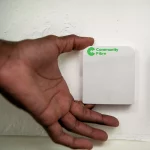Sponsored Links
UK TV and Film Stars Pile Pressure on ISPs to Halt Piracy
Posted: 17th Dec, 2008 By: MarkJ
Some of the countrys best known film and TV producers, directors and writers have written an 'Open Letter to The Times' in which they call upon UK broadband ISPs to act against online piracy (illegal file sharing / p2p). ISPs that fail to tackle the problem, they warn, should be compelled to do so:
It's easy to agree with the sentiments expressed but to suggest that ISPs are capable of solving the problem all by themselves is to misunderstand how the Internet and related technology works. Asking an ISP to inspect, identify and filter every single packet of data that passes through their networks is not only illegal (privacy) but virtually impossible.
To an ISP the Internet is like a river of nonsensical data where you can usually see what is being used but not how. This is why illegal activity is typically identified externally by flawed IP tracking methods, which later inform the ISP of which traffic and user they suspect of such activity.
Unfortunately IP addresses can easily be redirected, randomised, hijacked and generally abused. We've recently seen a growing number of cases where the wrong people have been accused of an illegal activity, highlighting some significant systematic weaknesses.
Meanwhile most online piracy remains a matter of civil rather than criminal law, usually due to the absence of commercial activity. There's a big legal distance between the person that downloads a single music track online and the one who sells it without a license to do so.
None of this is to suggest that ISPs couldn't do more but some sense of realism about what is and is not possible must be recognised. We wouldn't ask the Royal Mail to open EVERYBODIES letters just on the off-chance that one might eventually contain something illegal. Check out our 'To Ban or Not to Ban (Illegal File Sharers)' article for a more detailed background.
Letter Quote:
In 2007, an estimated 98 million illegal downloads and streams of films took place in the UK, while it is believed that more than six million people illegally file-share regularly. In relation to illegal downloads of TV programmes, the UK is the world leader, with up to 25 per cent of all online TV piracy taking place in the UK. Popular shows are downloaded illegally hundreds of thousands of times per episode.
We are asking the Government to show its support by ensuring that internet service providers play their part in tackling this huge problem.
Internet service providers have the ability to change the behaviour of those customers who illegally distribute content online. They have the power to make significant change and to prevent their infrastructure from being used on a wholesale scale for illegal activity. If they are not prepared to act responsibly, they should be compelled to do so.
In 2007, an estimated 98 million illegal downloads and streams of films took place in the UK, while it is believed that more than six million people illegally file-share regularly. In relation to illegal downloads of TV programmes, the UK is the world leader, with up to 25 per cent of all online TV piracy taking place in the UK. Popular shows are downloaded illegally hundreds of thousands of times per episode.
We are asking the Government to show its support by ensuring that internet service providers play their part in tackling this huge problem.
Internet service providers have the ability to change the behaviour of those customers who illegally distribute content online. They have the power to make significant change and to prevent their infrastructure from being used on a wholesale scale for illegal activity. If they are not prepared to act responsibly, they should be compelled to do so.
It's easy to agree with the sentiments expressed but to suggest that ISPs are capable of solving the problem all by themselves is to misunderstand how the Internet and related technology works. Asking an ISP to inspect, identify and filter every single packet of data that passes through their networks is not only illegal (privacy) but virtually impossible.
To an ISP the Internet is like a river of nonsensical data where you can usually see what is being used but not how. This is why illegal activity is typically identified externally by flawed IP tracking methods, which later inform the ISP of which traffic and user they suspect of such activity.
Unfortunately IP addresses can easily be redirected, randomised, hijacked and generally abused. We've recently seen a growing number of cases where the wrong people have been accused of an illegal activity, highlighting some significant systematic weaknesses.
Meanwhile most online piracy remains a matter of civil rather than criminal law, usually due to the absence of commercial activity. There's a big legal distance between the person that downloads a single music track online and the one who sells it without a license to do so.
None of this is to suggest that ISPs couldn't do more but some sense of realism about what is and is not possible must be recognised. We wouldn't ask the Royal Mail to open EVERYBODIES letters just on the off-chance that one might eventually contain something illegal. Check out our 'To Ban or Not to Ban (Illegal File Sharers)' article for a more detailed background.
Search ISP News
Search ISP Listings
Search ISP Reviews
Latest UK ISP News








Cheap BIG ISPs for 100Mbps+
150,000+ Customers | View More ISPs
Cheapest ISPs for 100Mbps+
Modest Availability | View More ISPs
Latest UK ISP News
Helpful ISP Guides and Tips
Sponsored Links
The Top 15 Category Tags
- FTTP (6722)
- BT (3863)
- Politics (3036)
- Business (2736)
- Openreach (2629)
- Building Digital UK (2488)
- Mobile Broadband (2434)
- FTTC (2132)
- Statistics (2102)
- 4G (2062)
- Virgin Media (1997)
- Ofcom Regulation (1761)
- 5G (1692)
- Fibre Optic (1587)
- Wireless Internet (1581)
Sponsored
Copyright © 1999 to Present - ISPreview.co.uk - All Rights Reserved - Terms , Privacy and Cookie Policy , Links , Website Rules






























